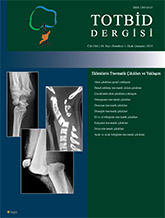
Total knee arthroplasty represents one of the greatest advances in modern orthopaedic surgery; in addition, it is a safe and effective procedure. However, knee arthroplasty is associated with several serious potential complications and even with death. Recent advances in surgical and anesthesia techniques have contributed to a marked decrease in mortality after total knee arthroplasty. Nevertheless, modern medical care results in longer life expectancy, and provides better survival of patients with cardiac and other systemic illnesses in particular; therefore, the frequency of application of primary knee arthroplasty to these patients increased. Hence, it is possible that orthopaedic surgeons may observe a higher prevalence of medical complications in their patients who have elective knee arthroplasty. Pre-existing systemic diseases and comorbidities have been associated with increased complications and mortality. A wide variety of comorbidities may be encountered, such as coronary artery disease, diabetes, hypertension, and they should be considered patient specific and multidisciplinary before the operation. For this purpose, ASA (American Society of Anesthesiologists) and CCI (Charlson Comorbidity Index) scoring systems are used to determine the risk level. In addition to ASA classification score (>3), patient age (>80), BMI (>40 kg/m2), and diabetes were identified as risk factors for the development of complications following surgery. The 2–3% mortality or major complication rate that is found for patients who underwent total knee arthroplasty confirms the need for diligent medical management during the perioperative period.